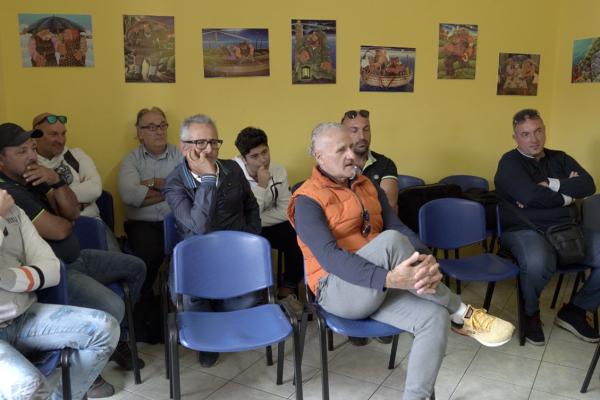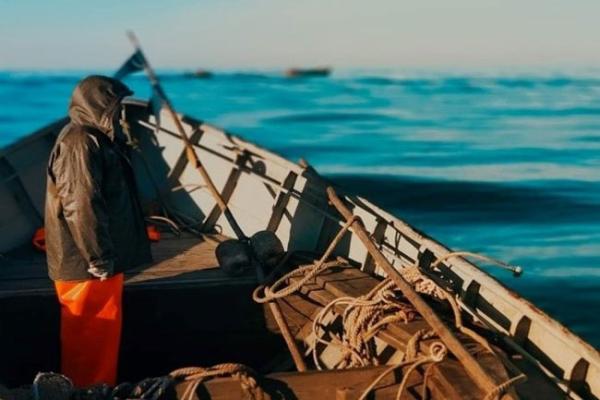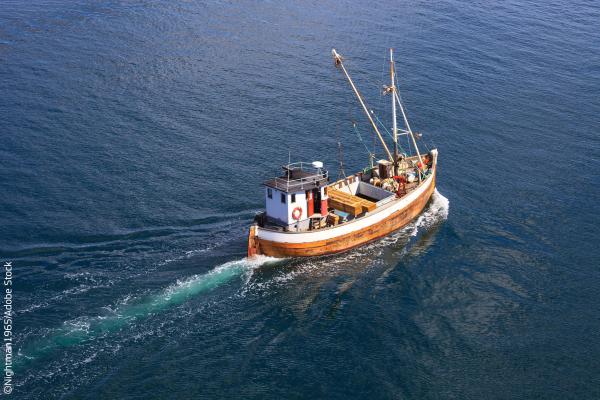The 'Fishers of the Future' foresight study is an EU-wide participatory project launched by the European Commission to examine the future role of fishers in society up to 2050. It ran from October 2023 to December 2024, and looked into fishers' hopes, fears, expectations and needs, to understand how the profession is likely to evolve by 2050. The study focused on fishers working in the waters of its 22 coastal Member States.
By better understanding possible trajectories of fishers’ roles and industry at large, we can better design policies that support sustainable, thriving, and inclusive fisheries for the long-term.
The study’s findings, along with discussions during and after the closing event, will inform the reflections planned throughout 2025 on the European Oceans Pact and the evaluation of the common fisheries policy (CFP) regulation. These elements will serve as a foundation for shaping a future vision for fisheries in 2040.
See the three phases of the study and detailed methodology below.
Four scenarios based on climate and market dynamics
Using the collective knowledge of those consulted, four different scenarios were developed (see image below) based on two main axes, namely the extent of climate and biodiversity changes in marine ecosystems and consumer demand within market dynamics.
Each scenario encompasses a complex interplay of other factors such as the geopolitical landscape, interactions with other coastal activities, the use of technologies, operational costs, recruitment challenges, etc.
The four scenarios are:
Scenario 1: Thriving responsibly (The EU fishing industry has adjusted well to challenges, high demand for EU-caught fish)
Scenario 2: Chasing declining stocks (climate change, declining stocks, high demand for EU-caught fish)
Scenario 3: Contested markets (moderate climate change, low demand for EU-caught fish)
Scenario 4: Scarcity and survival (scarce fish stocks, low demand for EU-caught fish)
Small-scale and large-scale fisher profiles were developed, considering the potential effects of the various scenarios on their activities. These profiles are detailed in the full study.
Methodology and sources used
The study was developed in three phases (see detailed factsheets below) using foresight methodology and with the participation of more than 190 fishers across 22 coastal Member States as well as official representative bodies of fishers and many other stakeholders.
- The first phase developed a snapshot of the situation today. For this study, this meant developing profiles capturing a range of current characteristics of fishers across the EU.
- The second phase focused on the development of future scenarios in which fishers might be living and working in 2050, through the identification of key drivers and trends.
- The third phase considered how these scenarios might impact and shape the profiles of fishers in 2050 (for the large scale and small scale fleets).
See the final report for full details about the methodology used.
What is foresight?
Foresight explores long-term futures and creates shared visions for policy-making projects. The foresight approach provides the tools for exploring the mid- to long-term future in a systematic, participatory and inclusive way. The resulting collective intelligence and systemic view allows for a better understanding of the possible future consequences of current trends and emerging developments. New insights are generated to inform today’s decision making and thus to shape the future.
More information on the European Commission’s use of foresight.
Background
The ‘Fishers of the Future’ study is a key element of the ‘Pact for Fisheries and Oceans’, announced in February 2023, to examine the future role of fishers in society up to 2050.
The Fishers of the Future study is an EU-wide participatory project that examined the future role of fishers in society up to 2050.
Tetra Tech International Development lead this study for the European Commission, with partner organisations Poseidon Aquatic Resource Management Europe and Ipsos, and experts from F&S, Trinomics, and national researchers from the 22 EU coastal Member States.
News

In 2024, Tetra Tech and partners, a consortium contracted by the European Commission, engaged in a consultation process with EU fishers, their representatives from EU advisory councils, and social partners. The goal was to explore potential future scenarios for the fishing sector by 2050.

Over the last 4 months, a team of national researchers led by Tetra Tech and partners, a consortium contracted by the European Commission, have consulted about 200 fishers in the EU coastal member states in their local languages to define who they are, how they live, and what drives them.

Who are today’s fishers? Over the last three months, a team of national researchers led by Tetra Tech and partners, a consortium contracted by the European Commission, have consulted fishers in all 22 coastal EU Member States to define who they are, how they live, and what drives them.

The Commission has launched ‘Fishers of the Future’, an EU-wide participatory project that will examine the future role of fishers in society up to 2050.

Today, the Commission is presenting a package of measures to improve the sustainability and resilience of the EU's fisheries and aquaculture sector.












